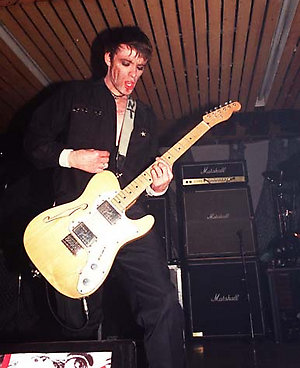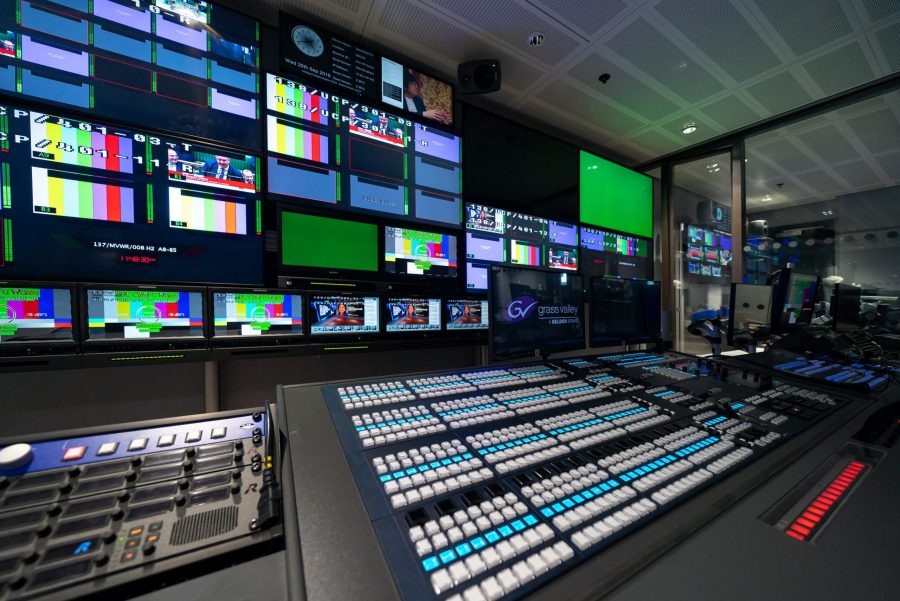Entertainment
Government to review ‘dynamic pricing’ in wake of Oasis ticketing outrage

THE UK GOVERNMENT has announced a comprehensive review of the ticket sales market following widespread backlash over the inflated prices of tickets for the recently announced Oasis reunion tour. The surge in prices, driven by dynamic pricing models, has left many fans feeling excluded from the chance to see their favourite band perform live, with ticket prices more than doubling from their face value.
Culture Secretary Lisa Nandy expressed her disappointment over the situation, describing the inflated prices as “incredibly depressing.” She highlighted the Government’s commitment to addressing the issue and ensuring that fans are not exploited by the system. Nandy stated that the review will focus on the transparency and use of dynamic pricing, particularly the technology behind queuing systems that appear to incentivise such practices.

“After the incredible news of Oasis’ return, it’s depressing to see vastly inflated prices excluding ordinary fans from having a chance of enjoying their favourite band live,” Nandy remarked in a statement. “This Government is committed to putting fans back at the heart of music. We will include issues around the transparency and use of dynamic pricing, including the technology around queuing systems which incentivise it, in our forthcoming consultation on consumer protections for ticket resales.”
The controversy erupted when fans attempting to purchase tickets for the Oasis reunion tour found themselves faced with prices that skyrocketed from the initial £75.00 to as much as £498.00 on Ticketmaster. The surge pricing model, also known as dynamic pricing, adjusts ticket prices based on demand, leading to what many fans have described as “sickening” and “scandalous” increases.
Crundale resident Gavin Young said: “I came into work on Saturday by 8.30am to use the office computers to buy my tickets. I was put into a queue of 274,677 people. After 8 hours of waiting at my desk I got to number one in the queue, but as soon as I got to the checkout the system was trying to charge me £498 for ‘budget seating’ for tickets that were initially advertised at £75.00 each.
“This is despite the band saying that tickets being sold over ‘face value’ would be cancelled.
“I feel devastated because I am a massive fan of the band, and one of those lucky enough to have seen Oasis live in Knebworth on August 11, 1996.
“Admittedly my mate and I, just 17-years-old at the time got given free tickets by a mystery woman walking out of the VIP entrance back stage, whilst we were trying to sneak in.
“We doubt that we would have the same luck this time around.”
One prominent figure affected by the pricing surge was Government minister Lucy Powell, who revealed that she had paid more than double the original quoted price for tickets to an Oasis show. Powell, the House of Commons leader and Lord President of the Council, purchased two tickets for £350 each for the Heaton Park concert in July, which had originally been priced at £148.50, excluding a booking fee. Speaking to BBC Radio 5 Live, Powell admitted that while she does not “particularly like” surge pricing, it reflects how the market operates. However, she emphasised the need for transparency, stating, “You’ve absolutely got to be transparent about that so that when people arrive after hours of waiting, they understand that the ticket is going to cost more.”
Ticketmaster, the platform where the tickets were sold, has defended its role in the pricing controversy, clarifying that it does not set the prices. According to the company, ticket prices are determined by the “event organiser,” who prices the tickets according to their market value. Despite this defence, many fans were left frustrated, not only by the inflated prices but also by technical issues on the Ticketmaster website, which led to some being incorrectly labelled as bots and missing out on tickets altogether. However, Ticketmaster maintained that its website did not crash and advised customers to clear their cookies and use only one tab when attempting to purchase tickets.

The Oasis reunion tour, marking the end of a decade-long feud between brothers Noel and Liam Gallagher, quickly sold out all 17 of its announced shows, including two in Cardiff. The overwhelming demand and the issues with ticketing have reignited debates over the fairness of the secondary ticket market and the ethics of dynamic pricing.
Adding to the concerns, secondary ticket seller Viagogo listed a seat at Wembley for July 25 at an eye-watering £5,289. The platform has defended its practices, with its global managing director stating that it is the fans who set the prices. Viagogo also reiterated that resale is legal in the UK and that fans are protected by a guarantee that they will receive their tickets in time for the event or get their money back.
In response to the controversy, Oasis has issued guidance to its fans, advising them to use only Ticketmaster and Twickets for reselling tickets and to list them at “face value” to avoid cancellation by the promoters. The band’s promoters, Manchester-based SJM Concerts, Irish MCD, and Scottish DF Concerts & Events, have yet to comment on the matter.
Meanwhile, Education Secretary Bridget Phillipson has also weighed in on the debate, linking the issue of dynamic pricing to broader concerns about pricing practices in other sectors, such as travel companies and airlines, particularly during school holidays. Phillipson acknowledged that dynamic pricing is an area that requires further consideration, especially given its impact on families. However, she stressed the importance of ensuring children attend school regularly, warning that missing days at the start of the term can set a negative pattern for the future.
In the wake of the public outcry, fans have taken to Change.org to demand immediate action. Within the last 48 hours, over 16 petitions have been launched on the platform, collectively amassing thousands of signatures. These petitions primarily target Ticketmaster, calling for an end to what many fans see as exploitative practices.
One petition, echoing the sentiments of many, reads: “Their monopoly on the sale of tickets has allowed this greed to go unchecked for years. It’s time it was banned!” Another frustrated fan added: “It isn’t fair for us to have to pay more just because the event we wish to attend is in higher demand. Ticketmaster’s dynamic pricing strategy unfairly exploits loyal fans who simply want to enjoy an event.”
The wave of petitions comes amidst a broader backlash against dynamic pricing, which has overshadowed the excitement surrounding Oasis’s much-anticipated return. Fans have also called on the band to add more tour dates or to consider broadcasting performances through national broadcasters to accommodate those unable to secure tickets.
Sylvia Rook, Lead Officer for Fair Trading at the Chartered Trading Standards Institute (CTSI), said: “We are aware of the fact that many consumers have complained that the tickets they were offered, after having queued for several hours online, ended up costing substantially more than the originally advertised prices that were released at the end of last week.
“Whilst dynamic pricing is an accepted practice for holidays, flights and taxis, the difference here is that consumers are informed of the price before they decide to make a purchase. In this case, the public were given a price for tickets, and were not informed until they finally got to the front of the queue, that the price had increased. This undoubtedly meant that many consumers have overreached and ended up spending much more than they originally intended. Many other consumers ended up disappointed after deciding not to proceed to pay the vastly increased prices. One CTSI member who queued for 5 hours was faced with paying £348 for a standing ticket at Wembley when he was expecting to pay £151.
“Dynamic, or fluid pricing, is not specifically prohibited by consumer protection law; the important factor is that consumers are not misled by the indicated price. It is a breach of the Consumer Protection from Unfair Trading Regulations 2008 if a trader misleads consumers regarding the price of goods and services, if that causes the average consumer to take a different ‘transactional decision’. In this case many consumers would not have joined the queue had they known that the price would have increased by the time they were able to purchase, and many fans could not afford the increased price.
“Ticketmaster have said the tickets were ‘in demand’ tickets, which is why the price was higher but, to ensure consumer legislation is complied with, all relevant information about the price should have been given to consumers before they joined the queue. CTSI is also aware of the vastly increased price of tickets on resale sites, meaning that genuine fans are unable to buy tickets which may have been purchased by bots.
“Anyone who feels they were misled by the promotion of the Oasis tickets and the ticket platforms promoting them is encouraged to report the matter to Trading Standards by calling the Citizens Advice Consumer Helpline on 0808 223 1133 if in England and Wales. In Scotland, contact Advice Direct Scotland on 0808 164 6000, or if in Northern Ireland, call Consumerline on 0300 123 6262.
“We will be working with the government to see how consumers can be better protected with regard to the sale of event tickets.”
This isn’t the first time dynamic pricing has come under fire. In February, a Change.org petition started by user Allister Thompson garnered nearly 50,000 signatures, demanding that the practice be banned. Although this earlier petition did not lead to immediate action, there is renewed hope among concert-goers that the current Government review, announced by Culture Secretary Lisa Nandy, might finally address the issue.
As the Government prepares to launch its review, fans and industry stakeholders alike will be watching closely to see whether new regulations will be introduced to curb the excesses of the current ticketing system. The aim is to create a fairer marketplace that puts fans first and protects them from the exploitative practices of touts and price surges, ensuring that live music remains accessible to all.
Entertainment
New appeal in search for missing Manic Street Preachers musician

Family and charity issue fresh appeal for information about guitarist 31 years on
THIRTY-ONE years after the disappearance of Richey Edwards, a new public appeal has been issued urging anyone with information to come forward.
Edwards, guitarist and lyricist with Manic Street Preachers, vanished on January 31, 1995, in a case that has become one of the most enduring mysteries in British music history.

The then 27-year-old was last seen at the Embassy Hotel Bayswater in west London, where he had been staying ahead of a promotional trip to the United States. He checked out of room 561 but never reached his destination.
Despite numerous reported sightings over the years, none have ever been confirmed. Edwards was officially declared presumed dead in 2008, though his family continue to mark the anniversary of his disappearance and keep hope alive that answers may still emerge.
Anniversary appeal
The charity Missing People has released a statement in collaboration with Edwards’ sister Rachel, asking the public to remember the case.
In a social media post, the organisation said: “It is 31 years since Richard went missing, please keep his family in your thoughts.”
They also repeated key identifying details from the time he vanished. Edwards was described as white, around 5ft 7in tall, slim, with brown eyes and a shaved head. He had several distinctive tattoos, including a rose with the words ‘Useless Generation’, the phrase ‘I’ll surf this beach’, and a scar on his lower left arm where he had scratched the words ‘4 REAL’.
Unanswered questions
His car was later found near the Severn Bridge services, close to the Welsh border, prompting widespread searches but yielding no firm clues about what happened next.
At the time of his disappearance, the band were on the brink of international success. Edwards’ intense, literate songwriting and striking image had already made him a defining figure in Welsh rock music. More than three decades later, fans still hold vigils, create murals and share tributes across Wales and beyond.
Police say the case remains open.
Anyone with information is asked to contact the Metropolitan Police Service on 101 or use their online reporting service, quoting reference CONNECT REF 01/764429/24. Missing People also operates a free, confidential helpline on 116 000.
Entertainment
Turner and Constable brought to life on the big screen at the Torch Theatre

ART lovers in Pembrokeshire will have the chance to experience the lives and rivalries of two of Britain’s greatest painters when a new documentary, EOS: Turner & Constable, arrives at the Torch Theatre this March.
Celebrating the 250th anniversary of their births, the film explores the intertwined stories and enduring legacies of J.M.W. Turner and John Constable alongside Tate Britain’s major new exhibition. Exhibition on Screen has been granted exclusive behind-the-scenes access, bringing their extraordinary art and personal histories vividly to the cinema screen.
Born just a year apart, Turner and Constable helped redefine landscape painting in Britain – and were fierce competitors. Both captured a nation in transition, yet their styles could not have been more different. Turner’s dramatic skies, blazing sunsets and atmospheric scenes from his travels contrasted sharply with Constable’s gentle, nostalgic portrayals of the English countryside and familiar rural life.
Their opposing visions divided critics and audiences alike, famously described at the time as a clash of “fire and water”.
The documentary offers rare, intimate access to sketchbooks, letters and personal artefacts, alongside insights from leading curators and art historians. It also ties in with Tate Britain’s landmark exhibition, running in London from November 2025 to April 2026, which reunites the two masters’ works side-by-side.
This cinematic event gives audiences the chance to see their masterpieces in stunning detail and discover unexpected sides to two artists whose rivalry shaped British art history.
Turner and Constable will be screened at the Torch Theatre on Sunday, March 15 at 4:30pm.
Tickets are £13. For bookings, visit www.torchtheatre.co.uk or call the Box Office on 01646 695267.
Entertainment
Companies awarded funding as part of Made in Wales: Factual Entertainment project

BBC Cymru Wales, BBC Network and Creative Wales have awarded four Wales-based production companies funding to develop ideas for a new Factual Entertainment series
BBC CYMRU WALES, BBC Network, and Creative Wales announced the launch of a new development fund for a Factual Entertainment series at the Wales Media Summit last year.
Production companies with a substantive base in Wales were invited to pitch bold, original ideas that celebrate Welsh creativity while delivering unforgettable entertainment to audiences across the UK.
Boom, Curve Media, South Shore and Tŷ’r Ddraig have successfully been awarded funding to further develop their ideas for a new Factual Entertainment series. Each company will receive £10,000 of funding, with development starting in the coming weeks.
Nick Andrews, Head of Commissioning BBC Cymru Wales, said: “We were really impressed by the variety and volume of the submissions we received – companies really responded to our call for ideas for an ambitious, returnable format, that surprises, unites, and captivates. We’re so excited to be working with the four successful companies, and we’re looking forward to seeing how their ideas develop further.”
Catherine Catton, Head of Commissioning, Factual Entertainment and Events, said: “Made in Wales is a collaboration to find a major new factual entertainment series that will harness the best of Welsh creativity and resonate across the UK. We are really looking forward to working with brilliant Welsh talent to come up with the next big thing.”
Joedi Langley, Interim Head of Creative Wales, said: “This announcement follows a recently published and updated Memorandum of Understanding (MOU) between Creative Wales and BBC, a commitment between the two organisations to work together to support the vibrant, diverse, world-class screen industries in Wales.
“This new development funding will do just that – create new opportunities for Welsh based production companies to develop exciting, original ideas for factual content. Congratulations to the indies, we look forward to seeing what comes next!”
The total funding of £40,000 has been provided by BBC Cymru Wales, BBC Network and the Welsh Government via Creative Wales.
-

 Health5 days ago
Health5 days agoConsultation reveals lack of public trust in health board
-

 News6 days ago
News6 days agoCaldey still unsafe, survivors warn — despite Abbey’s reform claims
-

 Community6 days ago
Community6 days agoPembrokeshire students speak at national Holocaust Memorial Day event
-

 News6 days ago
News6 days agoKurtz raises Gumfreston flooding in the Senedd as petition deadline nears
-

 Crime7 days ago
Crime7 days agoMan denies murdering brother as jury hears of ‘ferocious attack’ at Morriston flat
-

 Community7 days ago
Community7 days agoStorm Chandra: Morning impacts across Pembrokeshire
-

 Entertainment7 days ago
Entertainment7 days agoRapunzel brings festive magic to Torch Theatre
-

 Crime4 days ago
Crime4 days agoPembroke man accused of child sex offences sent to Swansea Crown Court
































